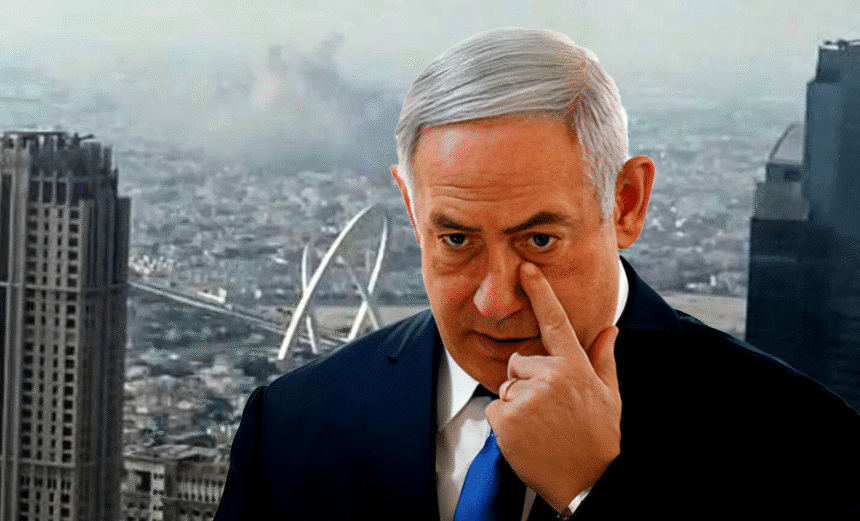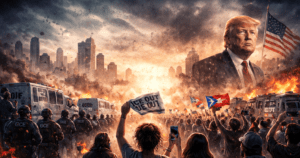Israeli Prime Minister Benjamin Netanyahu expressed regret to Qatar for a missile strike on its capital earlier this month, in a trilateral phone call mediated by U.S. President Donald Trump at the White House. The apology, confirmed by both Washington and Doha on September 29, 2025, marked a rare diplomatic concession from Israel and underscored Washington’s determination to keep Qatar engaged in peace efforts related to Gaza.
The conversation took place during Netanyahu’s visit to Washington, where he was scheduled to discuss the U.S.-backed Gaza peace proposal. President Trump connected Netanyahu with Qatari Prime Minister Sheikh Mohammed bin Abdulrahman al-Thani and pressed both sides to move beyond the crisis. In the call, Netanyahu expressed what the White House described as “deep regret” for the September 9 strike in Doha that killed five Hamas operatives and a Qatari security officer. He acknowledged that the attack violated Qatar’s sovereignty and pledged it would not be repeated.
The strike itself had generated a storm of criticism. Israeli forces had targeted Hamas figures in Doha while they were engaged in talks about the U.S. peace plan. The attack killed a Qatari officer, Badr Al-Dosari, alongside several Hamas members. Qatar immediately suspended its role as a mediator, condemned the strike as a breach of sovereignty, and demanded a formal apology before resuming its diplomatic role. The United Nations Secretary-General called the strike a flagrant violation of international law, while other regional governments warned it would jeopardize already fragile ceasefire discussions.
President Trump’s involvement proved decisive. According to U.S. and regional sources, he had personally urged Netanyahu to state regret, insisting that without it, Qatar would not re-enter negotiations. Trump had also spoken with the Qatari emir in advance to prepare the ground for reconciliation. By facilitating the call, Trump strengthened his role as a broker in the Gaza conflict and sought to position himself as the architect of a possible peace breakthrough. He also distanced the U.S. from the decision to strike Doha, publicly stating that it was not undertaken with American approval and criticizing Netanyahu for the fallout.
Qatar’s response was cautiously welcoming. Doha said it took note of Netanyahu’s assurances and signaled that it was ready to resume mediation, reiterating its commitment to regional security and humanitarian relief. Analysts described the apology as a “significant step,” since Qatar had been clear that it would not return to the table without a formal acknowledgment of responsibility. Restoring Qatar’s mediation role could prove critical in reviving negotiations over a Gaza ceasefire and a potential hostage exchange.
Inside Israel, however, Netanyahu’s apology drew fire. Right-wing coalition members denounced the move as capitulation. National Security Minister Itamar Ben-Gvir labeled the expression of regret “disgraceful,” while other hardliners accused Netanyahu of weakening Israel’s deterrence. By contrast, opposition leaders described the apology as a pragmatic act, necessary to prevent Israel from becoming completely isolated diplomatically. The mixed reactions highlighted Netanyahu’s political dilemma: he must keep his fragile coalition intact while also responding to mounting international pressure to temper Israel’s wartime tactics.
The trilateral call also produced an agreement to establish a new framework for dialogue among Israel, Qatar, and the United States. Though details were scarce, U.S. officials suggested the mechanism would serve as a communication channel to prevent further crises and to coordinate future negotiations. Whether this initiative succeeds will depend on political will and the broader trajectory of the Gaza war.
Ultimately, the episode demonstrated both the fragility and the necessity of diplomacy in the region. For Trump, it was a chance to showcase his dealmaking instincts. For Netanyahu, it was a politically costly but potentially strategic concession. For Qatar, it was a reaffirmation of sovereignty and influence. The apology did not resolve the Gaza conflict, but it reopened a vital line of communication, a reminder that even in moments of deep hostility, diplomacy remains a tool that can shift the course of events.












